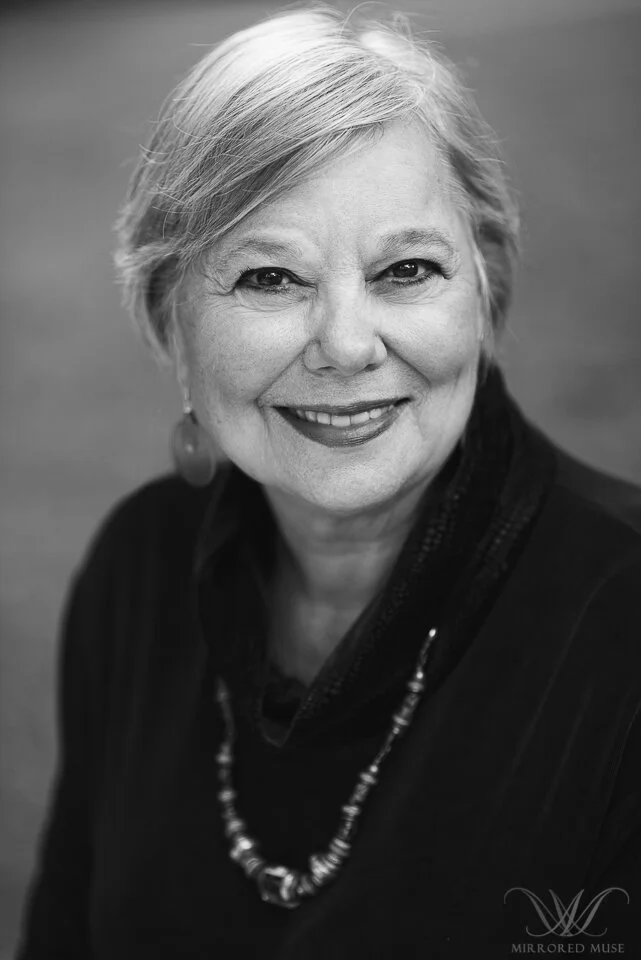My Grandmother's Teeth
My grandmother’s teeth have been the lively topic of family jokes for many years. This is not cruel, but rather a kind of family shorthand, coded with her legacy of the need for levity during adversity. Even today, mention of my grandmother’s teeth prompts laughter and joy.
My grandmother was in the habit of keeping her false teeth in a pocket stitched on the leg of her bloomers, which we called knickers. She would ask, “Where’s my teeth?”
Knickers being a naughty word in those days, we’d hold our sides with laughter and reply, “In your knickers, Nan.”
She was a fastidious woman who collected knick-knacks like teacups, statues, and glasses. These she placed on the many ledges of her modest, spotless, and gas-lit London home. She crocheted with her tiny, yet agile arthritic hands, which fluttered before my three-year-old eyes like small birds building a nest.
She was a storyteller, holding me spellbound as she told of the olden days when horse-drawn hansom cabs plied London’s bustling streets. Girls like her sold their blossoms for a half-penny. She could mimic their cries: “Buy my loverly flowers, mistah. Only a ha’penny a bunch.”
I’d plead, “Say it again, Nan.” Whereupon she’d pick me up on her lap and hold me like those beautiful flowers. I’m her flower girl, I secretly repeated to myself. Lovely flowers, precious memories.
My grandmother’s eyes twinkled with wit and laughter. Her face was carved with laugh lines that kept their smile no matter what she was feeling. Her handmade doilies covered the backs of chairs and decorated table tops, adding a hint of gentility. As a child, I would stare at the lace curtains until, like magic, the patterns shifted into one. It was like looking at the moon, gorgeous and intricate.
In harsh contrast, I came into a shattered world six days before WWII ended. Mine was a traumatic entry into a world mad with the protracted suffering of war. My grandmother had already lost two of her nine children to the slaughter. A third son was imprisoned in a Japanese prisoner-of-war camp. He returned only to die ten years later of a brain tumor brought on by the unthinkable cruelty he had endured in silence. I was birthed into her world and named after her favorite son, Francis, who fell out of the sky in a Royal Air Force bomber after being shot down over France during the D-Day Invasion. I was welcomed into my grandmother’s warm embrace, into her arms, into her sanity.
During the Blitz, my grandmother refused to leave her home unless the air raid was close by. One night, she was confronted with the inevitable trek to the air raid shelter at Caledonia Road underground station. As the bombs dropped closer, her companion Mrs. Roberts urged her to leave.
“I’m not going without my teeth”, she insisted. Having apparently mislaid her denture, she searched for them in the pocket of her knickers.
Impatiently, Mrs. Roberts commanded, “Hitler’s dropping bombs, not sandwiches.”
I can picture these two women collapsing in laughter on the staircase, leaning against a wall while mayhem thundered around them. Seventy years later, I visited that house on Bride Street, Islington. It is still standing. Across the street, post-war maisonettes line the site where a bomb fell. That’s how close certain death came. After it all, she knew a lot about deep anxiety. “Never mind, girl,” she’d say when I sought reassurance.
My grandmother had an intuitive understanding of the need for humour in adversity. It’s a humor that is quintessentially cockney in origin, called “cockney slang.” Perhaps you’re familiar with “apples and pears” meaning stairs or “barnet fair,” cockney slang for hair. When she called down from her bedroom, “Climb those apples and pears, come on and comb my barnet fair!” I would run as fast as my seven-year-old legs would carry me up to her room. There, I felt special and appreciated.
The world outside was another matter. It was the world of the English class system, where those who had power were not necessarily the most talented or qualified. I was already angry about this social inequality, even as a child. I became a rebellious misfit. That way, I could hold onto a shred of dignity and individuality. For I knew I was being molded into a worker who would resign herself to a monotonous existence on a factory conveyor belt or as a shop assistant in a store. The fear of living a wasted life was acute even at that early age.
My grandmother had known hardship, loss, terror, and pain raising nine children as a single mother. But through it all, her resilience helped her cope and in the end, she triumphed. Her meager pension was supplemented by her work as a charlady. This meant scrubbing and cleaning the homes of middle-class families. She took pride in polishing the front steps with cardinal red polish until the steps gleamed like lips that kissed visitors’ feet as they crossed the home’s threshold. Through all this, she lived from pension day to pension day, the pennies meticulously recorded in her Post Office Savings book.
Her humor danced into her colorful language, which was all her own–a personal world full of ironic comparisons to the topsy-turvy world outside. “Shorty” was a nickname for a tall man, while a short man was called “lofty.” Even though this working-class woman was uneducated and relatively powerless, with her tender wit and sense of absurdity, she could laugh into exile all that she could not control.
This is the coded language she shared with her children and grandchildren, and it exposed me to the nuances of irony more than any dictionary definition or university course ever could. When my mother would remind us of my grandmother’s teeth story, she lifted her skirt! That was a cue for my grandmother to dance back into our lives, even for her great-grandson whose comic timing brought a twinkle to my mother’s eyes.
-Francis Roberts-Reilly
Frances Roberts-Reilly is a writer, storyteller, Celtic harpist, and filmmaker. She began writing seriously in 1972, whilst working at BBC television in London, England. After making award-winning documentaries, she earned an Honors degree in English Literature at the University of Toronto. She is a published poet. Her book is The Green Man. Frances has published numerous short stories, articles, and poems, and she has been a guest author on CBC Radio and WSRQ Radio, Sarasota. She lives in Kitchener, Ontario, Canada.





















